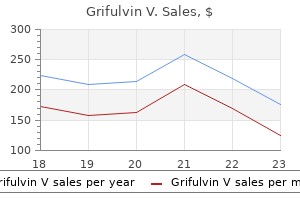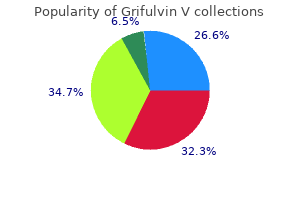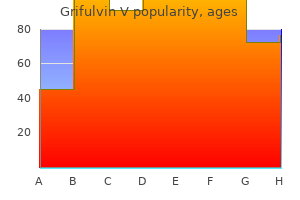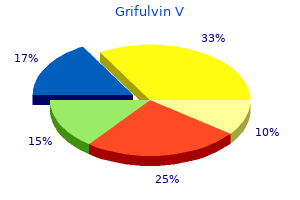"Grifulvin v 250mg without a prescription, antifungal vitamins minerals".
S. Ford, M.S., Ph.D.
Vice Chair, Liberty University College of Osteopathic Medicine (LUCOM)
The interview is terminated and the interrogator is barred from asking any more questions. Any effort to maintain a rapport with the suspect is considered a violation of the right. Even though a suspect waives his or her right to silence after receiving appropriate warnings, he or she may state that he or she does not want to answer any additional questions. When that point in the interrogation is reached, the interrogation must be terminated because the suspect has revoked his or her consent to be questioned. Even though a suspect invokes his or her right to silence, he or she may still be asked to authorize a consent search of any property over which he or she exercises possession or ownership. One must exercise caution to ensure that no questions are asked which would result in the suspect making a statement, either an oral declaration or physical act, which is protected by Article 31(b) or the Fifth Amendment. Once the suspect has invoked the right to silence, questioning must cease immediately. The suspect may not be approached again for questioning unless: the suspect initiates contact and dialogue; a subsequent waiver is obtained 21; or fourteen days have passed since the suspect was in custody. The right to a lawyer is not merely a right to consult with counsel prior to questioning, but also to have counsel present during any questioning if the accused so desires. Once the accused invokes the right to counsel, the interrogation must cease until counsel has been made available unless the accused initiates further communication, exchanges, or conversations with law enforcement. If the interrogation of a suspect is conducted in the presence of his or her retained or appointed lawyer, questions will be directed to the suspect, not to the lawyer. While it is desirable that the suspect responds to the questions, special agents cannot limit the participation of the attorney. The special agent should neither submit to cross-examination by the attorney nor divulge evidence against the suspect unless it appears advantageous to do so under the circumstances. If classified information is involved in an investigation, the suspect must be cautioned that he or she may not disclose classified information to any retained or appointed lawyer, unless the lawyer has the proper security clearance. The interrogation should not be conducted in the presence of the lawyer unless he or she has obtained the proper clearance. The prospective trial counsel can assist in obtaining a security clearance for the defense counsel. Additionally, the interrogator should determine if the subject is currently 21 If suspect asserted the right to counsel, subsequent waiver must be obtained in the presence of counsel. If the suspect chooses to terminate the interrogation, no additional questions should be asked. The accused or suspect should affirmatively acknowledge that he or she understands the rights involved, affirmatively decline the right to counsel, and affirmatively consent to making a statement. If the suspect refuses to provide a written waiver but also does not unambiguously assert his or her right to remain silent or have the assistance of counsel, special agents must be prepared to demonstrate that a suspect has not previously attempted to exercise the right to counsel, has not affirmatively asserted the right to remain silent, and any statement of the suspect was the result of a waiver implied from the conduct or statements of the suspect. Obtaining Waiver (1) Immediately after the advisement of rights, the following questions should be asked to determine if the suspect understands and desires to waive those rights: (a) Do you understand your rights Although the signing of the form does not conclusively demonstrate an effective waiver, the completed form is evidence of a waiver. The individual administering the rights is encouraged to refer to the waiver form when providing the oral warning to insure that a full advisement of rights is given to the suspect and that the advisement is substantially in accordance with the language set forth on the form. If the suspect refuses to sign the appropriate waiver form, the interrogating special agent must insure that the suspect is not expressing a desire to invoke his or her rights. Special agents should note the exact words, reasons, or refusal to sign the waiver in the interrogation log and must give the following specific 13 warning: "Your failure to sign the waiver does not mean that your statements cannot be used against you. To be admissible as evidence against an accused, a pre-trial statement taken from a suspect during interrogation must have been made after a knowing, voluntary, and intelligent waiver of rights. For a statement to be admissible at trial, it must be made voluntarily subsequent to a voluntary waiver of rights. The statement will be deemed involuntary if obtained by use of a threat, promise, inducement, duress, or physical or mental abuse amounting to coercion or unlawful influence. Whether a statement was made voluntarily and rights were waived voluntarily is not based on the belief of the investigator but rather on the totality of the circumstances.

When the accused is not the actual thief, they may be found guilty of knowingly receiving the stolen property; however, they cannot be guilty of both larceny and receiving stolen property. Agencies or entities with which the investigating agent should maintain liaison for cooperation purposes include, but are not limited to: a. Military intelligence and other intelligence and other military criminal investigative agencies. Various motives prompt individuals to give information of this nature; consequently, such information should be viewed with suspicion until proven valid. The interrogation of persons apprehended/arrested for blackmarketing or other offenses may provide information on known or suspected blackmarket operators or may reveal new suspects. The screening of reports submitted concerning supply shortages or thefts may produce important investigative information. Because of the possible transfer or relocation of personnel involved, these reports should be screened promptly and any indicated leads should be checked out as soon as possible. Experience will indicate which missing supplies are likely to appear on the blackmarket. Upon official request, postal authorities may provide information relative to the purchase of money orders. Such information may reveal that purchasers had more money than they might normally be expected to have, and thus, may provide reasonable grounds for further investigation. The agencies and units of the supply and maintenance services normally handle or stock many commodities that may make their way onto the blackmarket. Both the personnel and the records of these agencies may be valuable sources of information as to types and amounts of missing supplies and places where these commodities might have left authorized channels of distribution. If local civilian employees are encouraged to report any irregularities they observe, they may provide extensive and valuable information. Employees may be encouraged to make such reports by pointing out to them that blackmarketing activities are detrimental to the economy of their country. In the course of its activities, the Naval Audit Service may detect irregularities that may be linked with blackmarketing activities. Personnel employed at these places may be a valuable source of information in that they may detect irregularities on the part of fellow employees and the excessive sale of blackmarketable commodities to certain individuals. Some exchanges have their own security personnel who can also be a source of pertinent information. Information on the amounts of money that military personnel have exchanged through finance offices may be helpful in detecting individuals who have more money than they should legally possess. Since merchants are concerned with the buying and selling of commodities, they may know about commodities that are being procured from the blackmarket. They may be able to provide the names of individuals who have such commodities for sale. Investigation of blackmarket activities involves the standard investigative procedures employed in criminal cases, such as interviewing witnesses, interrogating suspects, surveillance, collection and preservation of evidence, and obtaining statements and confessions. An agent must resist the temptation to apprehend the suspect prematurely for possession of a minimal amount of contraband when it is known that the suspect deals in much larger amounts and is associated with local nationals. The agent, however, must be constantly aware that members of the local law enforcement agency could potentially be involved in blackmarket operations that emanate from the naval facility. This request will contain the identity of the requesting official, the objectives of the operation, and assurance from the host country law enforcement and j judicial officials (fully identified) that violators will be p prosecuted to (y) the fullest extent of the law. Investigated under case category 6G, counterfeiting of currency, coins, or other U. The problem of controlling this illegal activity is aggravated by technological advances in printing and by reproduction machines that enable persons with little or no skill to engage in counterfeiting. The mobility of the modern criminal permits him to pass the counterfeit currency hundreds of miles from its source. A counterfeiter can duplicate any obligation or document that will afford them profit or gain. Some examples are: bonds, money orders, official seals, stamps, and identification cards. Examples of typically counterfeited official documents include passports, immigration documents, and Social Security cards. Depending on the document, primary jurisdiction for investigation may be with another law enforcement agency.

However, when clients are educated about the reasoning behind a logical, step-wise approach to tumour diagnosis and treatment, most of them are relieved to have this knowledge and will pursue more diagnostics, even if this is more costly up front. As mentioned earlier, this type of diagnosis is also made in cases where the treatment will not change based on the type of tumour. If the radiographic diagnosis is consistent with a primary bone tumour and the signalment of the patient is also consistent with the diagnosis, bone biopsy is considered unnecessary by some surgical oncologists. If, however, there is a bone lesion in a location or patient that is not consistent with a primary bone tumour, a biopsy is recommended. A bleeding splenic mass will need to be removed regardless of whether it is hematoma or hemangiosarcoma. A lung mass will need to be removed regardless of whether it is an abscess, granuloma or tumour. The advent of advanced imaging can help us to characterize these tissue types better in a noninvasive manner, but will only allow us to reach a more educated presumptive diagnosis. As well, it is critical to keep a very good record of where each biopsy came from, the use of a tumour map can be very helpful in these cases. Staging of the tumour determines where exactly the tumour is locally and also if the tumour has metastasized to other sites. The methods for staging for metastatic disease will depend largely on the tumour type. For other masses, the staging tests performed will depend on the biologic behavior of the tumour type. In general, carcinomas tend to metastasize to lymph nodes and sarcomas tend to metastasize to lungs, however, this just a generalization and the reverse can be true in some cases. Although it does sound academic, three-views of the thorax are necessary to avoid missing a metastastic nodule. The upper lung field will be more aerated and therefore a nodule will be more apparent due to the contrast with the air in the lung. A nodule in the upper lung will also be more apparent due to magnification because of an increased distance from the plate. Multiple views will also allow the visualization of a nodule that was hidden by other thoracic structures. The local lymph nodes should be palpated in all cases and should be aspirated in cases that have a tendency to metastasize to lymph nodes. Any questionable lymph nodes should be biopsied (incisional or excisional biopsy). An example of this is anal sac adenocarcinoma, which has a very high rate of metastasis to the sublumbar lymph nodes. For cancers that have a tendency to metastasize early in the course of disease, such as hemangiosarcoma or osteosarcoma, it is very important to explain the significance of the staging tests to clients. Most clients have a hard time understanding that if their pet is deemed clear of gross metastasis, the pet still has a high risk of microscopic disease. Spending time explaining this to clients early on will save a lot of confusion for them later in the course of disease. It is the reason why chemotherapy is recommended in these cases and why it extends their lifespan, but, unfortunately, does not cure their disease. If the client cannot afford or does not desire therapy for a pet, then it is unnecessary to clinically stage the patient; diagnosis and prognosis are all that are required for good communication. However, if the client desires the best possible care for the pet then complete clinical staging is essential. This is often designated as grade 1,2 or 3, with 1 having the least aggressive biological behaviour and 3 having the most aggressive biological behaviour. The grading system is particular to each tumour type and every pathologist may have a slightly different approach to tumour grading. It is important to keep in mind that although the grading system helps us to predict the biological behaviour of the tumour, each tumour type has a continuum of histological appearance and they are being categorized somewhat arbitrarily. It is also possible that the grade may shift from the incisional biopsy to the definitive resection because the pathologist will have more tissue to work with. Information regarding the tissue type, stage of disease and histologic grade can now be assessed to give the owner a prediction of prognosis and a plan for treatment.

Struggling states are willing but unable to fully assist-like Tanzania after the 1998 bombing of the U. What distinguishes adversary states is that they have the capacity to do as we ask, but willfully choose not to . Nonetheless, even in failed states someone represents authority, if only at the local level, and therefore bears responsibility and needs to be held accountable. Let a regime explicitly support attackers or do nothing to eliminate them, and that government invites the largest and loudest U. For instance, one of its radical turns back to common sense is to remind everyone that governments have choices and responsibilities. A second twist is that all countries receive equal treatment-England, Russia, Iran, the Comoros. Granting everyone equal opportunity may be eminently American, but it is not something we have applied to foreign policy thus far. Yet consider: in a world of purposeful miscommunication, calculated misinformation, sophisticated disinformation, and increasingly cynical audiences, being unequivocally principled conveys a message no one can misinterpret. At the heart of future diplomacy would 434 F P R I be the uncontested reminder: you already know what to expect. Not only would a strategy predicated on being totally forthright-and decisive from the outset-put an end to charges of hypocrisy, but it would make it next to impossible for politicians (ours or theirs) to play shell games with force. But-if Terrorist A has traveled to Country X on a passport issued by Country Y, then Country Y and Country X have a lot to answer for. Those who would be treated as adversaries are those who either refuse to answer such questions or openly defy us by refusing to hold anyone accountable for gaps in their security. In other words, when thinking about how the United States would respond to anti-American violence, two things would have to occur before the U. Second, that sovereign government refused to meet our demands to permanently neutralize our attackers. Worth emphasizing is that this is not a policy of mindless punishment or destruction. Its intent is not to wipe out-or even threaten-every unlucky, inept, or corrupt regime. Question: could anti-Western jihadis, or any anti-American actors for that matter, flourish in such a world Meanwhile, to make this work-to get the American people on board-would require several things. Acceptance might only come in the wake of a defeat in Afghanistan, or another 9/11. Or, it could take a truly gutsy politician to urge Americans to revisit our Constitution and better understand what grand strategy is supposed to do: align ends, ways, and means. Because, say jihadis were to strike Chicago tomorrow, what would the United States do There is nothing in place and no strategy on the horizon to either reassure the American public or warn the world: Attack us, and this is what you can expect. Thus, unlike most students of counterinsurgency and counterterrorism, my co-authors and I do not look at violent extremists and argue that the U. If the United States had a series of counter-responses prepared in advance, then no enemy could benefit from our misfortune. Of course, in the ideal Sovereignty Rules world no one would have cause to target us since the U. But, in the wake of recent events, we do still have adversaries-and, thanks to our current actions, revenge will motivate at least some of them for quite some time to come. As for what clever adversaries might use against us, no one who writes about national security today analyzes our domestic divisibility as a real security concern. Yet, 35 years ago the North Vietnamese proved more than capable of manipulating soft American hearts and sympathetic American minds to undermine our will to win the war in Vietnam. It seems only prudent to assume that a smart adversary would therefore want to embroil us in a long war, and then purposely aggravate and even manipulate our differences over foreign policy. To prevent this 436 F P R I is just one further reason we should adopt an unambiguous foreign policy, to include a return to Declarations of War. With Declarations of War the United States would always be poised to deploy force, but only after clear sovereignty redlines have been crossed, and full debate has occurred. As for whom that enemy might be, here we come to the heart of a matter that too few want to squarely face: Just War theory has been totally outstripped by twenty-first century (even late twentieth century) realities.

Further, this subcategory includes investigations of suspected arson of wildlands. Attempts and conspiracies to commit any of the above will also be investigated under this subcategory. All situations involving the receipt of a telephonic, electronic or mail threat, where no explosive device, real or hoax, is involved will continue to be reported under category 7B (Bomb Threat). The guidance and procedures that follow will obviously not be applicable or practical in all bomb and arson investigations. The special agent must recognize the complexity of an investigative situation, obtain assistance as required, and be flexible, persistent, and resourceful in order to conduct a thorough and professional investigation. The willful and malicious intent element is often times the most difficult to establish and will be discussed in detail later in this chapter. Burning must be an actual burning or charring; a scorching or discoloration is insufficient to complete the offense. Burning may be defined as a change in the molecular structure of a material brought about by the application of heat. The identification of the suspect(s) as the culpable party is a self-explanatory element. That the property is of some value and belongs to another is usually self-evident, but raises some related questions. A person cannot commit simple arson by setting fire to his own property; however, such incidents may involve fraudulent insurance claims or claims against the government, and should be investigated under this subcategory. In the crime of aggravated arson, value or ownership of the burned property is immaterial. A person may be guilty of aggravated arson even against his own dwelling, whether owner or tenant. Aggravated arson may be committed by the burning of any building, vehicle, or shelter (including a tent), either public or private, movable or immovable, where the offender reasonably believes it to be occupied by a human being. It may be inferred that the offender has such knowledge when the nature of the structure, as a Navy Exchange Store or theater during hours of business, are shown to have been such that a reasonable man must have known of the presence of human beings therein at the time. The actual presence of a human being in an inhabited dwelling at the time of the burning is not necessary to constitute the offense of aggravated arson. An inhabited dwelling also includes the outbuildings that form part of the cluster of buildings used as a residence. A naval vessel qualifies as a structure with regard to the elements of aggravated arson. The investigating agent will be tasked with determining whether or not the fire was intentionally set (arson). Welding/hotwork, electrical, mechanical, and other accidental causes must be evaluated/eliminated as the heat source of the fire. Physical evidence in a shipboard fire which occurs while the vessel is operational may, by necessity, have been destroyed or eliminated. With this concern in mind, commands tend to dispose of burned materials and possible evidence by washing it overboard. Because of this necessity, it is essential that the responding agents immediately identify all members of the damage control and fire fighting parties and seal the spaces in which the fire occurred prior to the initiation of any repairs. It should be noted that in order to complete this offense there need not be a malicious intent, nor must there be property of value burned. Explosions resulting from a fire will be investigated as a resultant act of the fire. Fires resulting from an explosion will be investigated under this subcategory, but will be investigated as an explosion vice a fire. Associated categories of wrongful destruction (6U), injury (7G), or death (7H) may also be appropriate. There are six (6) general motives for arson, as outlined in the "Crime Classification Manual," Douglas et. Statistically, the first four listed are the most common motives seen in the military environment. Vandalism-motivated arson is due to malicious and mischievous motivation that results in destruction or damage. The excitement-motivated arsonist is prompted to set fires because he craves excitement that is satisfied by fire setting.

